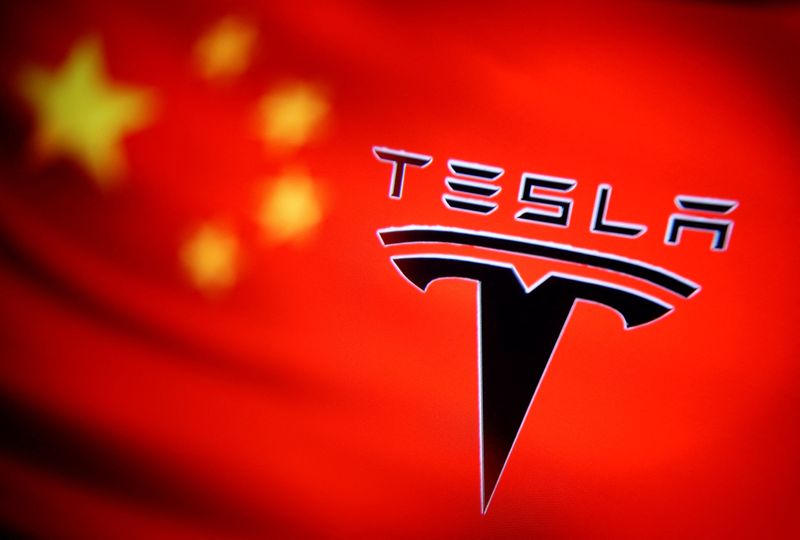SHANGHAI (Reuters) - U.S. human rights and trade groups on Tuesday blasted Tesla (NASDAQ:TSLA)'s New Year's Eve announcement that it opened a showroom in Xinjiang, the latest foreign firm caught up in tensions related to the far-western Chinese region where detention camps have drawn heavy criticism.
The Council on American-Islamic Relations, the largest U.S. Muslim advocacy organization, said Tesla was "supporting genocide". Similar criticism came from a U.S. trade group, the Alliance for American Manufacturing, and U.S. senator Marco Rubio.
"Elon Musk must close Tesla’s Xinjiang showroom," the Council on American-Islamic Relations said on its official Twitter (NYSE:TWTR) account, referring to Tesla's founder.
Xinjiang has become a significant point of conflict between Western governments and China in recent years. U.N. experts and rights groups estimate more than a million people, mainly Uyghurs and members of other Muslim minorities, have been detained in camps there.
U.S. President Joe Biden and members of the U.S. Congress have stepped up pressure on companies to distance themselves from Xinjiang. On Dec. 23, Biden signed a bill barring imports of goods made in the region.
White House spokeswoman Jen Psaki said she would not comment directly on Tesla’s action, but generally the “private sector should oppose the PRC human rights abuses and genocide in Xinjiang.
“The international community, including the public and private sectors, cannot look the other way when it comes to what is taking place in Xinjiang."
The United States has labeled China's treatment of ethnic Uyghurs and other Muslims in Xinjiang as genocide. The United States and a few other countries plan a diplomatic boycott of the Beijing Winter Olympics in February over the issue.
China has rejected accusations of forced labour or any other abuses there, saying that the camps provide vocational training and that companies should respect its policies.
Tesla, the world's most valuable automaker, announced on Dec. 31 that it was opening a showroom in Xinjiang's regional capital, Urumqi. "On the last day of 2021 we meet in Xinjiang," Tesla said in a post on its official Weibo (NASDAQ:WB) account.
Other U.S. and European automakers or their Chinese partners have showrooms in Urumqi, a city of some 3 million people. German automaker Volkswagen AG (OTC:VWAGY) has a car factory near Urumqi.
Tesla did not immediately respond to a request for comment for this story. The carmaker operates a factory in Shanghai and is ramping up production there amid surging sales in China. China has also become an export hub for Teslas headed to Europe and other markets.
Musk last year had to smooth over relations with Chinese authorities after Teslas were banned from government properties because of concerns that data collected by the vehicles' cameras was being transferred out of China.
CHINA'S CONSUMER POWER
A slew of foreign firms in recent months have been tripped up by tensions between the West and China over Xinjiang, as they try to balance Western pressure with China's importance as a market and supply base.
"There is this tension between global investors and the Chinese government. The global investors want market access. And the Chinese government says the cost of access is acquiescence," said Michael Dunne, chief executive of Zo Zo Go, an investment advisor that works with automotive and technology companies doing business in China.
In July, Swedish fashion retailer H&M reported a 23% drop in local currency sales in China for its March-May quarter after it was hit by a consumer boycott in March for stating publicly that it did not source products from Xinjiang.

Last month, U.S. chipmaker Intel (NASDAQ:INTC) faced similar calls after telling its suppliers not to source products or labour from Xinjiang, prompting it to apologise for "the trouble caused to our respected Chinese customers, partners and the public".
Although some have been trying to reduce their supply chain exposure to the region, especially as Washington bans imports such as Xinjiang cotton and blacklists Chinese companies that it says have aided Beijing's policy there, many foreign brands operate stores there.